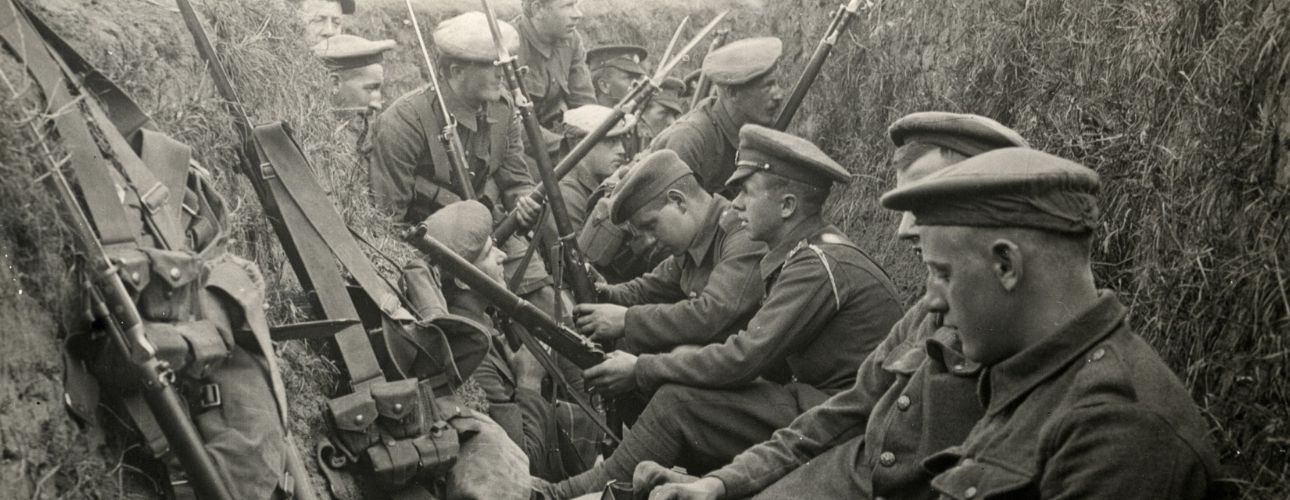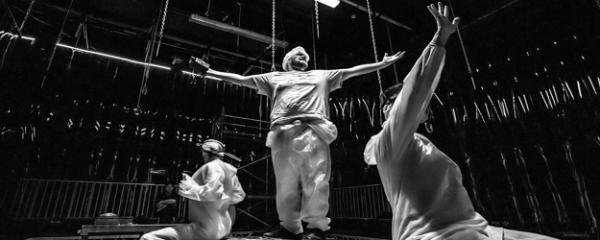Historical geographers at Queen’s partnered with communities and institutions nationally and internationally to co-produce research sharing untold experiences of war, enhancing inclusive cross-community understanding of contested heritage.
The Living Legacies 1914-18 World War 1 Engagement Centre has successfully created rich and extensive accounts of our shared heritage underpinned by geographical research, drawing on geospatial and digital techniques and methodologies. Their work gives new grounding and provides new spaces for engagement around contested heritage through co-production projects, workshops and events, working alongside communities to uncover new knowledge and deepen understanding of our shared past.
Research Challenge
EXPLORING THE LEGACY OF WW1 AMONG COMMUNITIES IN THE UK
In 2013, a major call was issued by the AHRC for proposals from consortia of research organisations to support and encourage the extensive interest in exploring World War One (WW1) and its legacy among communities in the UK.
The centenary of WW1 and commemorating critical historical events of 1916 in Ireland presented a significant challenge for heritage bodies and communities across the UK and Ireland as they had potential to heighten divisions between communities. This was identified as a key policy concern by UK and Irish governments, as well as providing a unique opportunity to explore how to commemorate past conflict inclusively.
Our Approach
USING GEOSPATIAL TECHNOLOGIES TO EXPLORE ALTERNATIVE NARRATIVES ABOUT PAST PLACES
Led by historical geographers at Queen’s University, an AHRC-funded WW1 Engagement Centre “Living Legacies 1914-18” partnered with communities and institutions nationally and internationally to co-produce research sharing untold experiences of war, so enhancing inclusive cross-community understanding of contested heritage.
Spatial humanities research at Queen’s, particularly using geovisualisation, digital methodologies and geospatial technologies, especially mapping as an interpretative space for exploring alternative narratives about past places, helped to directly shape and guide the creation, development and delivery of the Living Legacies project.
Over six years, Living Legacies delivered a public engagement programme that supported 120 community centenary projects in Britain and Ireland, reached 16,225 event participants, and 210,000+ exhibition visitors, as well as leveraging c.£900k for community coproduction projects between 2014-19, delivering significant policy-recognised benefits and impacts in the UK and Ireland.
Living Legacies has been central to helping the National Lottery Heritage Fund achieve the aims of its strategic partnership with AHRC to support First World War Centenary projects to increase public understanding of the war…
- National Lottery Heritage Fund
What impact did it make?
ENHANCING UNDERSTANDING AND RESPECT FOR IMPORTANT EVENTS
Living Legacies’ impact on enhancing community relations through exploring and sharing contested heritage is commended by the Community Relations Council (CRC). Funded by the Northern Ireland Executive, the CRC notes:
'It is in no small part down to Living Legacies that community groups and the public are coming to an understanding of the complexity of this period and that our sense of identity is becoming more permeable. In our experience communities and individuals are interested in the broader narratives, however, without assistance and expertise being made available it is difficult to make this a reality.’
The work which has resulted from ‘Living Legacies’ has informed institutional and policy strategies and outcomes, including most significantly for the National Lottery Heritage Fund, but also was explicitly recognised by the DCMS Select Committee in 2018 in its evaluation of the Centenary commemoration efforts.
Outlining ‘Lessons from the First World War Centenary’, the Committees highlighted the role of Living Legacies in mitigating local racism and sectarianism in Belfast, and the UK Prime Minister’s special representative for the WW1 centenary, Dr Andrew Murrison MP, said it had enhanced understanding and respect for important events: “It has been that Irish dimension that has been the most heartening and, for me, probably one of the most productive things that we have achieved”.
Our impact
Impact related to the UN Sustainable Development Goals
Learn more about Queen’s University’s commitment to nurturing a culture of sustainability and achieving the Sustainable Development Goals (SDGs) through research and education.









